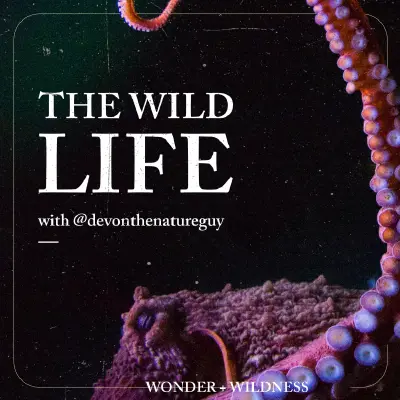Podcasts about Nature
Episodes about Nature
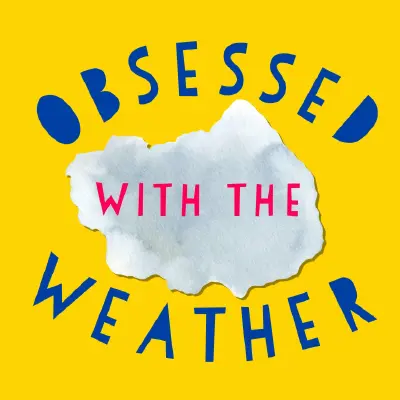
Send us a text🔥 Is another heat wave on the horizon? As we cruise into mid-July, temps are climbing — and we’re talking about the hottest temperature ever recorded in July! 🌡️🌊 The tides are shifting just in time to unlock prime beach days, and the ocean is finally starting to warm up. ☀️ But as the sun sets a little earlier each night, daylight is slowly slipping away…💧 With all the recent rain, is the drought still a concern? We’ve got the latest status — plus your full weather preview for July 13–20, 2025.🎙️ It’s all coming up next on Episode #203 of Obsessed With the Weather!Support the show
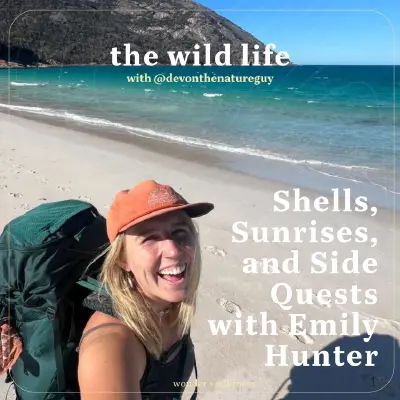
What happens when you follow curiosity wherever it leads?In this episode of The Wild Life, I’m joined by Emily Hunter—a passionate environmental science educator, interpretation specialist, bushwalk guide, and nature communicator currently living and working along Australia’s Ningaloo Reef.Emily shares her journey from being a "tree hugger" kid in Idaho to becoming a globe-trotting interpreter of nature's stories, using awe as a tool for connection. We explore the power of wonder as a precursor to knowledge, how interpretation helps break down scientific gatekeeping, and what it really means to talk on behalf of the land, sea, and sky.Along the way, we dive into:Why knowledge alone doesn’t spark change—but wonder mightThe magic of the Ningaloo ReefWhat it's like to snorkel with first-timers and hike with strangers before sunriseWhy environmental education needs weirdness, joy, and emotional honestyAnd how following a sticker or a Facebook post can change your lifeWhether you’re a student wondering how to get started, a teacher trying to bring passion into your practice, or someone who’s just trying to rekindle that childhood spark of curiosity—this one’s for you.🌏 You don’t have to live near a coral reef to live a rich, curious, nature-connected life.Sometimes it starts with a question. Or a shell. Or a really good sunrise.📣 Share this episode with someone who needs to be reminded that weird is good—and wonder matters.

Daniel Holz studies black holes, gravitational waves, and cosmology, all while also running the Existential Risk Laboratory at the University of Chicago.
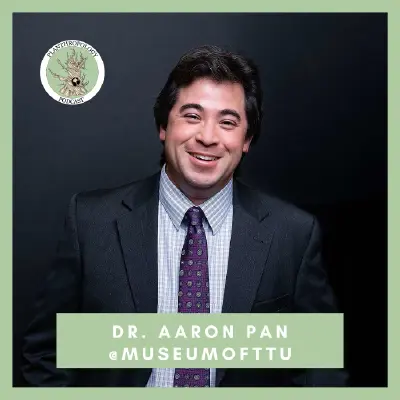
Send us a textJourney through millions of years of plant evolution with paleobotanist Dr. Aaron Pan, who unearths fascinating stories locked within fossilized leaves, fruits, and seeds from Earth's distant past. As Executive Director of the Museum of Texas Tech University, Dr. Pan bridges the worlds of scientific research and public education, sharing how ancient plant remains challenge our understanding of modern ecosystems.Prepare to have your assumptions about plant origins completely upended. Did you know eucalyptus trees – quintessentially Australian icons – likely originated in South America? Or that Africa once had thriving palm forests despite hosting fewer palm species today than tiny Singapore? Dr. Pan's research in Ethiopia reveals evidence of lush, palm-filled landscapes that existed 21-27 million years ago, before continental collisions dramatically reshaped Earth's biodiversity.The conversation explores how paleobotany differs from other paleontological disciplines, with plants presenting unique challenges since their various parts – leaves, flowers, fruits – can be scattered and fossilized separately. We delve into the collision of Africa with Eurasia that introduced zebras, giraffes, and lions to the continent, fundamentally altering both plant and animal communities in ways that continue to influence modern ecosystems.Beyond the science, Dr. Pan offers insights into museum work and the importance of preserving both specimens and knowledge. With 9.5 million items in its collection, the Museum of Texas Tech stands as the 19th largest natural history collection in America. Whether you're fascinated by ancient plants, curious about how continents shape evolution, or simply love museums, this episode invites you to appreciate the incredible depth of time and the long, winding journey of plant life on our planet.Support the showAs always, thanks so much for listening! Subscribe, rate, and review Planthropology on your favorite podcast app. It helps the show keep growing and reaching more people! As a bonus, if you review Planthropology on Apple Podcasts or Podchaser and send me a screenshot of it, I'll send you an awesome sticker pack!Planthropology is written, hosted, and produced by Vikram Baliga. Our theme song is "If You Want to Love Me, Babe, by the talented and award-winning composer, Nick Scout. Midroll tunes are by Rooey. Substack: Office Hours Website: www.planthropologypodcast.com Podchaser: www.podchaser.com/Planthropology Facebook: Planthropology Facebook group: Planthropology's Cool Plant People Instagram: @PlanthropologyPod e-mail: planthropologypod@gmail.com
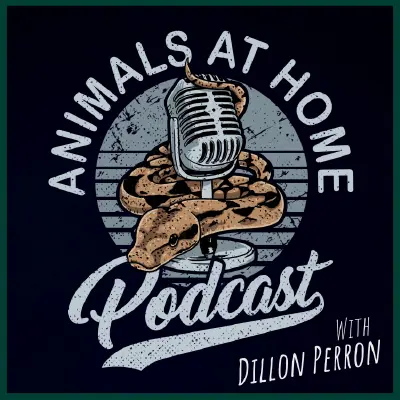
Jul 09, 2025
232: Abandoned Pet Reptiles: A Hidden Crisis and How to Fix It | Jordan Lyndon - AAH
Animals at Home Network ❭
Jordan Lindon of Midland Reptile Rescue in Birmingham, UK discusses his experience in running his reptile rescue, the finances involved, the importance of a strong community, and the operations day-to-day. This episode is a great one to tune into if you are someone with aspirations to run a reptile rescue; this truly goes over Jordan’s experience and viewpoints in the function of a reptile rescue in the community. Jordan also talks about mistakes to avoid, legislation viewpoints, species he sees frequently surrendered, and his set-up from taking in surrenders to adopting out. SHOW NOTES: https://www.animalsathomenetwork.com/232-midlands-reptile-rescue/SPONSORS: Visit The BioDude: https://www.thebiodude.com/ Visit Zoo Med Labs here: https://zoomed.com/JOIN US ON PATREON: https://www.patreon.com/animalsathomeLINKS FROM THE EPISODE:Midland Reptile Rescue Facebook: https://www.facebook.com/birminghamreptilerescue/Midland Reptile Rescue TikTok: https://www.tiktok.com/@midlandsreptilerescueMidland Reptile Rescue Instagram: https://www.instagram.com/midlandsreptilerescue/Photos and Video in Episode:https://www.instagram.com/midlandsreptilerescue/WE DISCUSS:00:00 Introducing Jordan Lindon - Midland Reptile Rescue2:38 Coming Up: Zoo Med ReptiTemp Dimming Thermometer3:10 Coming Up: The Bio Dude Bioactive Substrates + Dietary Supplements3:45 Welcome Jordan + Motivations To Start a Reptile Rescue and Expenses8:27 Demand For The Reptile Rescue + Looking For Homes12:25 Home Set-Up of The Rescue + Finances15:24 The Wrong Side Of Rescues + Legislation17:35 Memorable Surrenders19:38 Legislation in Banning Reptiles + Large Snakes21:26 How Many Species Does Jordan Have Now + First Aid in Reptiles23:21 How Do Animals Get Adopted Out?24:31 Zoo Med ReptiTemp Dimming Thermometer26:02 Rescues Being a Safety Net29:42 Tips in Starting a Reptile Rescue32:08 Care Resources + Strange Species34:28 The Bio Dude Bioactive Substrates + Dietary Supplements35:28 Jordan’s Personal Animals37:45 Transitioning Homes For Reptiles40:44 Jordan’s Feelings On Pet Shops, Breeders, and Expos46:24 Abandoned Reptiles Experiences48:06 Commonly Surrendered Species49:24 Plans For Youtube Channel/Social Media + Profits53:16 Goals in Rescuing + Education Services54:47 Major Mistakes to Avoid + Quarantining57:18 The Importance of Rescues59:19 Closing Thoughts

learn more about Wayne here: https://epd.unl.edu/profile/wohnesorg2In this episode I chat with Dr. Wayne Ohnesorg, an entomologist and extension educator at the University of Nebraska Lincoln. We discuss the role of extension services in pest management, the common pests found in urban and agricultural settings, and the impact of the soybean aphid. Dr. Ohnesorg shares his journey into entomology, including his education and career path, as well as some bizarre cases he has encountered in pest management. Join our community on Patreon! https://patreon.com/Lildudes?utm_medium=unknown&utm_source=join_link&utm_campaign=creatorshare_creator&utm_content=copyLinkLil Dudes Insect Academy is a non-profit dedicated to teaching the world about the amazing world of Insects (Entomology). We do this through workshops, classes, courses, resources, and online content! We have a free, family-friendly Podcast where Bradon talks with Entomologists, and we also have a Bug of the Week Series on YouTube!Website: lildudesinsectacademy.comDonate to the Academy: https://www.lildudesinsectacademy.com/donate.htmlFind our free Podcast here: https://www.lildudesinsectacademy.com/media/podcast.html✌️Follow us on:Facebook: https://www.facebook.com/lildudesinsectacademyInstagram: https://www.instagram.com/lil.dudes.insect.academy/Twitter: https://twitter.com/lildudesacademyYouTube: https://www.youtube.com/channel/UCDJx_th0guulNsJPE_75sDgentomology, pest management, extension services, soybean aphid, urban pests, agricultural pests, Nebraska, insect identification, entomologist career, 3D printing in educationLil Dudes Insect Academy is proud to be registered as a 501(c)(3) non-profit organization. Our mission is to educate anyone and everyone about the amazing world of Entomology, which is the gateway to all the sciences. Contributions to Lil Dudes Insect Academy are tax deductible, to the extent permitted by law. Our Tax ID is: 86-1976172
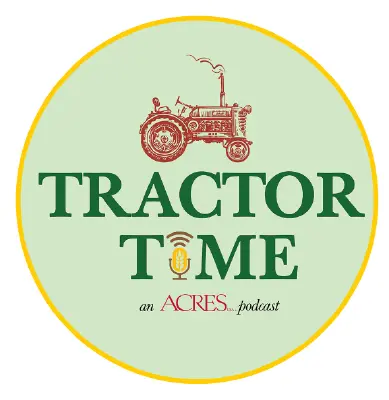
Jul 07, 2025
Beyond the Label: Unveiling the Pesticide Industry with Chuck Benbrook Ep. 64
AcresUSA: Tractor Time ❭
Join host Taylor Henry from Acres U.S.A. as he interviews Chuck Benbrook in a captivating episode of The Acres U.S.A. podcast. Discover Chuck's fascinating journey from a childhood playing in his grandmother's flowerbed to becoming a pivotal figure in agricultural economics and pesticide regulation. The discussion delves into Chuck's experiences in British Columbia's remote areas, his challenges and achievements in ranching, and his significant contributions to understanding the impact of pesticides, particularly glyphosate, on human health and agriculture. This episode also touches on Chuck's involvement in high-profile litigation against large chemical companies, revealing how industry practices and regulatory decisions have shaped modern farming and public health.Important Links from Today’s Episode:Members site: https://members.acresusa.comAcres U.S.A. Homepage: https://www.acresusa.com/Access Eco-Ag 2024 Recordings: https://conference.eco-ag.com/24recordingsAcres U.S.A. Memberships: https://eco-farming.com/Register for the “Viroqua On-Farm” Event: https://eco-farming.com/viroquaevent
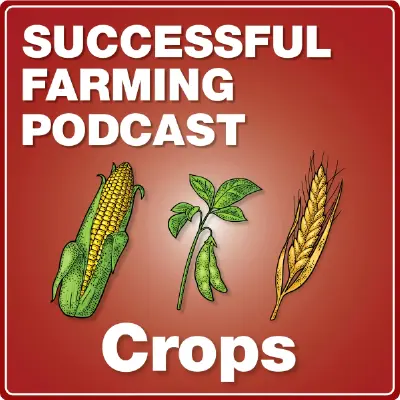
Jul 07, 2025
Foliar Disease Risks and Fungicide Decisions in Corn and Soybeans
Successful Farming Podcast ❭
In this episode of the Successful Farming Podcast, Lorrie Boyer talks with Dr. Mandy Bish, about managing foliar diseases in corn and soybeans.
Dr. Bish breaks down common fungal threats like tar spot, southern rust, and frogeye leaf spot. She shares expert advice on when to scout, how to identify disease symptoms, and how to time fungicide applications for maximum return on investment. Learn how weather conditions, crop rotation, and fungicide resistance factor into your disease management strategy.
Whether you're battling recurring disease pressure or looking to fine-tune your fungicide use, this episode offers practical, research-based insights to protect your yield.
Learn more about your ad choices. Visit podcastchoices.com/adchoices
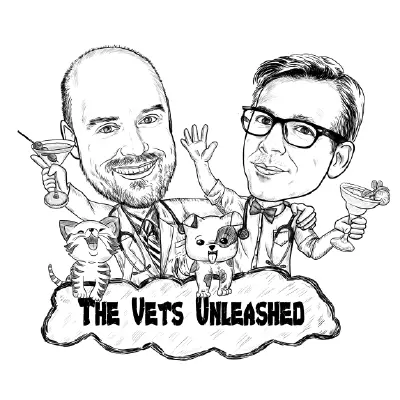
NSFW We’re getting into the first of our listener mail segments, and it’s the usual drugs and sex content you come here for week after week. What’s the appropriate level of embarrassment to feel after your vet surgically removes a sex toy out of your dog? If my dog starts acting funny after our walk through Portland, what are the signs for ingesting marijuana vs. methadone vs. methamphetamine? Does my dog lead a double life as a rock star with all these sex toys and drugs they’re ingesting? How can I lead a life more like my dog? You can get the answer to all these questions and more, this season on The Vets Unleashed! This Week’s Drink: The Foreign Body 1 oz Vodka 1 oz Dark Rum ½ oz Blue Curacao Simple Syrup (to taste) Lemon Juice (to taste) Raspberries (for foreign bodies)
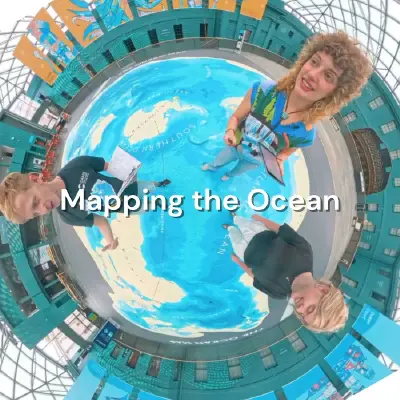
Jul 01, 2025
Mapping the Ocean: How Art, Play and Technology Are Reimagining Our Blue Planet
Talk of the Thames ❭
Step into the world’s first public Spilhaus projection ocean map with presenter Chloe Russell in this special World Ocean Day episode of Talk of the Thames. Recorded at the newly reopened Ocean Hall at the National Maritime Museum in Greenwich, this episode features an immersive walking interview with curators Tim May and Aimee Mook.Together, they explore ocean literacy, underwater ecosystems, and the power of play in environmental storytelling—from tiger sharks with cameras to coconut crabs, seagrass meadows, and underwater volcanoes.This episode blends science communication, creative technology, and ocean advocacy to remind us that our relationship with water extends far beyond the Thames—and across the globe.Perfect for listeners interested in: ocean science, museums, environmental storytelling, public engagement, climate communication, art-meets-science, World Ocean Day 2025.__________________Talk of the Thames has been brought to you by the Thames Estuary Partnership https://www.thamesestuarypartnership.org/Keep up to date with TEP on all platforms!Twitter: @ThamesEstPartFacebook: @thamesestuarypartnershipInstagram: @thamesestuarypartnershipYouTube: @thamesestuarypartnership Produced & Presented by Chloe Russell
